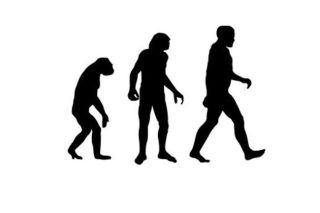OCTOBER 19, 2020 – I started out a conservative, thanks to strong family influences, but over the decades I’ve shifted leftward.
I was destined to stay a Young Republican until I sat next to a fellow 18-year old—who had no more business being conservative at that age than I did—aboard one of several busloads of “Kid Republicans” headed to the convention center in Miami to hear Nixon’s 1972 nomination acceptance speech. Our buses were stopped by protesters. When police in riot gear started beating the crap out of a protester, the kid next to me muttered, “That’s right, get ’im!” In that moment, I realized I was no longer a Young Republican.
Two years later after my sophomore year in college, I had a summer job selling books door-to-door in Buffalo, New York. For weeks I knocked on doors in all-Black neighborhoods—my first meaningful interaction with African-Americans. I listened to many stories about being Black in America—and found my politics shift again leftward.
After law school, I took the better part of a year and traveled around the world. I learned as much about America as I did of the many places I visited. The exposure to diverse people with diverse views caused me to question self-proclaimed American “exceptionalism.” My politics again moved left on the spectrum.
After Ferguson, our oldest son, Cory, became involved in Black Lives Matter. His activism led my wife and me to read about institutionalized discrimination. Among the books: Slavery by Another Name by Douglas Blackmon, a Wall Street Journal reporter, who’d methodically researched the treatment of Blacks in Alabama and Georgia after the failure of Reconstruction. Again, my politics moved to the left.
In the aftermath of the police shooting of Philando Castile less than a half mile from our house, we were confronted by the reality that Blacks in America live in a fundamentally different country from most whites—over a half century since the zenith of the Civil Rights Movement. We held ourselves accountable for having been oblivious to discrimination in our own “Minnesota Nice” small town.
By far the biggest influence on my politics has been my day-to-day work as a business lawyer for the past four decades; my interaction with clients, other lawyers and their clients, and governmental agencies across the country and my years as a middle manager inside a gigantic bank. These experiences revealed the need to achieve balance between private initiative and public interests; that in an orderly, uniformly prosperous society, individual freedom has its limits; that government serves a vital role in controlling excesses and providing services that are beyond the incentive and capacity of the private sector.
Most critically, I’ve learned first-hand, the wisdom of Senator Paul Wellstone’s famous adage, “We all do better when we all do better.” I’m still searching for the sweet zone on the political spectrum that will best implement the adage. In a highly complex, pluralistic democracy, that “sweet zone” seems elusive, but I, for one, will keep searching . . . and adjusting . . . until I find it.
(Remember to subscribe to this blog and receive notifications of new posts by email.)
© 2020 by Eric Nilsson

1 Comment
Apologies if this is coming through twice. I had a computer hiccough. I read Michelle Alexander’s “The New Jim Crow” earlier this year and it was, simultaneously, one of the most informative and distressing books I’ve ever read.
Comments are closed.